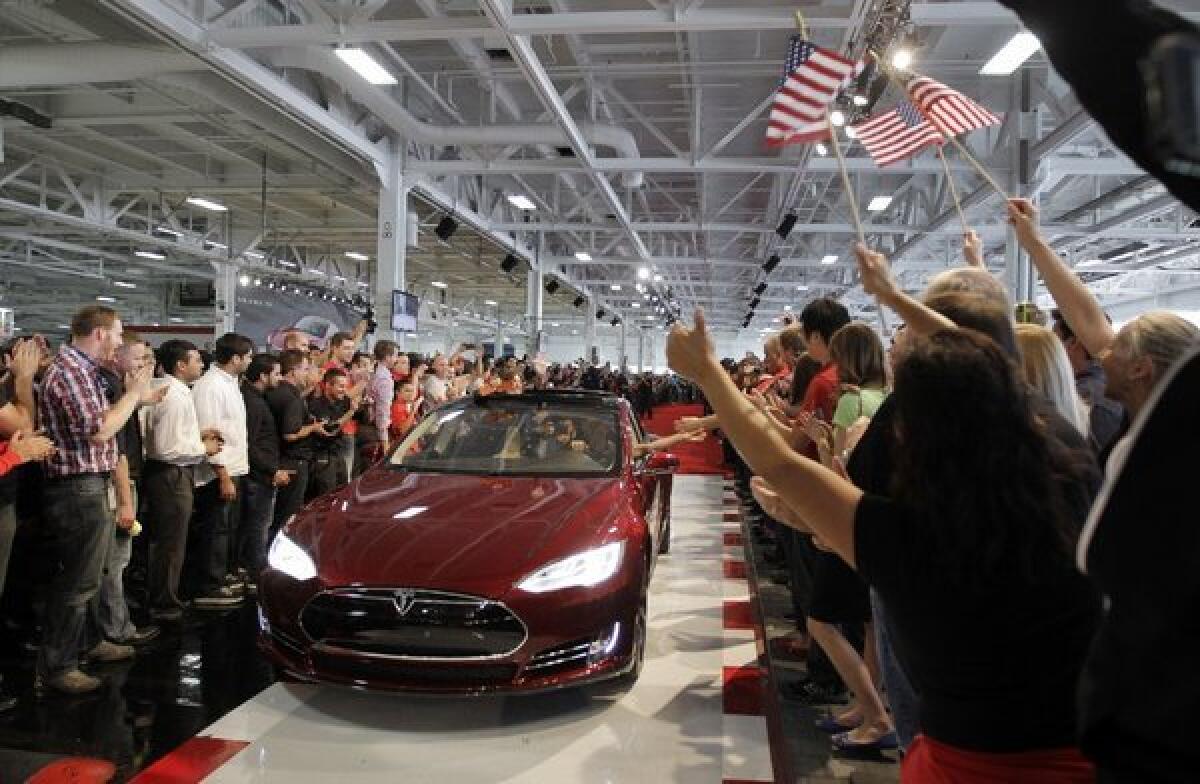Fuel cell expert says Tesla is promising more than it can deliver

- Share via
Just three days after Tesla Motors Inc. Chief Executive Elon Musk unveiled plans to greatly accelerate the rollout of his company’s coast-to-coast fast charger network, an expert in a competing technology was saying wait a minute, not so fast.
Paul F. Mutolo, director of external partnerships at the Energy Materials Center at Cornell University, said that he didn’t think that Tesla’s fast charge claims, or its batteries, would hold up under scrutiny.
Mutolo said it was encouraging to see Musk going after the alternative-fuel infrastructure problem “in a meaningful way.”
Electric car comparison test: EV specifications
But Mutolo added, “That said, the consumer should be wary of two things, hype and safety.”
Mutolo said it wasn’t likely that a driver would get more than 140 miles out of a 20-minute charge, and only that far if they were traveling less than 50 miles an hour.
“The numbers don’t add up,” Mutolo said.
On Friday, Musk had said that his supercharger network would soon allow cross-country travel from New York to Los Angeles -- free of charge, so to speak -- for drivers of the Tesla Model S sedan, which starts at about $70,000.
The super-charging stations are about 10 times faster than other available electric vehicle charging stations.
Mutolo also said that current lithium ion technology wouldn’t safely allow such a powerful charge.
“It could potentially catch on fire. Not a good idea,” Mutolo said.
It should be said here that Mutolo is a hydrogen fuel cell chemist, a competing technology.
Musk has made no secret of his disdain for hydrogen fuel cell technology powering the nation’s cars, once saying hydrogen “makes no sense” for powering cars.
Musk refrained from commenting on Mutolo’s statements, but the challenge was taken up by Jay Friedman, legislative director for the group Plug in America.
Friedman said he usually has a one-word response to hydrogen fuel cell proponents who want to raise the safety issue.
“Hindenburg,” Friedman said, referring to the 1937 fiery crash of the German airship that used lighter than air hydrogen to stay aloft. Thirty-six people died.
“If you look at any kind of fueling technology, there is some possibility for it to catch fire,” Friedman said.
But Friedman added that Tesla technology has been proving itself sound. “The way Tesla cools their batteries and monitors them, you won’t have something called ‘thermal runaway.’
“Even in Tesla’s fast-charging scenario, they are not charging the batteries in an abusive way. That is the real key thing.”
ALSO:
Electric cars getting as cheap as gasoline rivals
The worst backseat drivers are spouses, moms, friends, poll says
HRE Performance Wheels execs say California is costly for business, but worth it







